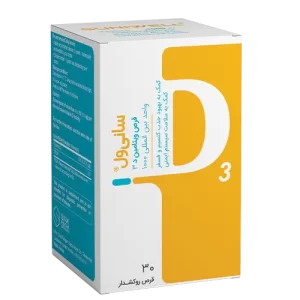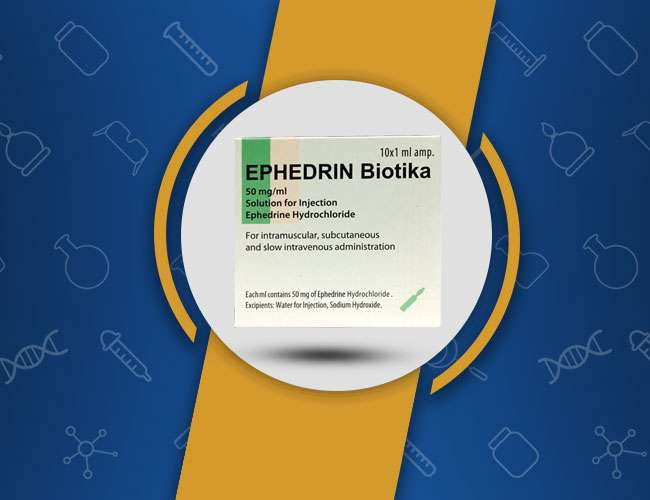
Vitamin D3 -1000 iu

Ephedrine is a catecholamine with a combination of direct and indirect alpha and beta sympathomimetic effects. Ephedrine significantly stimulates the cerebral cortex, subcortical region, respiratory center and vasomotor. Children are less prone to this central stimulus effect. Has a positive chronotropic and inotropic effect on the heart muscle, increases environmental resistance and blood pressure. Elderly patients may be more sensitive to cardiovascular effects. It dilates the niche, reduces the contraction and movement of the intestine (intestinal pressure and bowel movements), contracts the sphincter, the detrusor muscle (the muscle that removes urine from the bladder), and relaxes the bladder wall. Relaxes the muscles of the uterus. It dilates the pupil of the eye, but does not affect the eye’s response to light. In this respect, it has a similar effect to adrenaline, but it is weaker, slower and more lasting. Tachyphylaxis and tolerance to the effects of ephedrine may occur with repeated dosing.
Ephedrine biotica is used in combination with antihistamines in allergic diseases (bronchial asthma, allergic rhinitis or hay fever, angioedema, drug allergies).
blood circulation: Vasomotor collapse, sinus bradycardia (decrease in heart rate below normal), possibility of hypotension (temporary fainting, fainting due to sudden change and sudden position of the body from sleeping or sitting or standing) .
Central: Nocturnal urinary incontinence, narcolepsy (sleep attacks during waking hours)
Tell your pharmacist if you are taking or have recently taken any or any medicines.
Concomitant use of other supplements, such as compounds containing potassium and magnesium, may cause side effects.
This medicine, along with other medicines, has other side effects and interactions. Download and read the product brochure to know them and consult your doctor.
Common side effects of this medicine include the following:
Ataxia (lack of coordination of voluntary muscle movement), headache, insomnia, muscle weakness disorder, tremor (tremor)
Pre-pulse, dysrhythmia (irregular heartbeat)
Increased blood pressure
Paranoid psychosis, delirium, hallucinations
Urinary disorders (micturition)
Nausea, vomiting
Contact dermatitis
Tell your doctor, pharmacist or nurse if you have any of these side effects. This includes any side effects not listed in this leaflet. To read the medication guide, download and read the brochure on this page.
Ephedrine Biotka has central system stimulant effects and may present with nervous irritability and headache, so the patient’s ability to drive or operate machinery is assessed according to the patient’s current condition.
If you are pregnant or breastfeeding, think you may be pregnant or planning to have a baby, talk to your doctor or pharmacist before taking this medicine.
The teratogenic potential of the medicine in laboratory animals has been proven (possible effect of harm to the fetus). The damage occurred as a specific developmental disorder in the cardiovascular system. Tragic potential in humans has not yet been proven. There is no information on the mutagenicity (ability to cause genetic mutations) of ephedrine in scientific sources and databases.
Ephedrine biotics should only be used when the benefits of the medicine to the mother outweigh the potential risks to the fetus. Despite all of the above, caution should be exercised when prescribing ephedrine to pregnant women as ephedrine crosses the placental barrier.
Injectable ephedrine during labor may cause tachycardia in the fetus. Ephedrine biotica is not prescribed when the mother’s blood pressure rises above 80/130 mm Hg.
The amount of ephedrine in breast milk reaches a concentration that may harm the infant. If the mother is in a condition that requires ephedrine, breastfeeding should be stopped.
Other Products